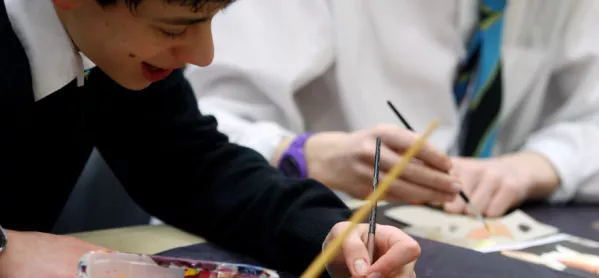Teacher training applications fall 12%

The number of people applying for teacher training courses has slumped by 12 per cent over the past year.
Figures from university admissions body Ucas reveal a sharp drop in the number of applications compared with this time last year, stoking fears of a serious teacher shortage.
The fall applies to both university and school-led training, including the controversial School Direct programme, which has previously been blamed for a failure to reach recruitment targets.
James Noble-Rogers, executive director for the Universities’ Council for the Education of Teachers, said the government should consider making bursaries available to all trainee teachers, not just top graduates in shortage subjects.
The Ucas figures show that the number of applicants from England has dropped by 4,500 to 33,500, 12 per cent fewer than in 2014.
Total applications for places on teacher training courses in England and Wales have also fallen, from 122,500 this time last year to 106,500, a 13 per cent drop. Most candidates make several applications at the same time.
The number of applicants accepted on to courses has also gone down. As of this month there are 20,500 applicants holding a firm offer for a place, either conditional or unconditional, down from 21,500 at the same stage last year, a 4 per cent decrease.
The figures will fuel fears of a teacher recruitment crisis. School inspectorate Ofsted warned last year that the number of new teachers had fallen by 16 per cent over five years, while pupil numbers are heading for a 50-year peak in 2023.
In a survey published by the Association of School and College Leaders last month, two-thirds of school leaders said recruitment was harder now than in previous years.
Mr Noble-Rogers said the fall could be linked to the improving economy, with teaching becoming relatively less appealing when other jobs were available. Potential applicants could also be put off by the confusion surrounding different routes into teaching, he added.
But he said the government should consider extending bursaries to cover all teachers. Bursaries worth up to £25,000 are available to graduates in physics, maths, computing, chemistry and languages, depending on their class of degree.
“There are very generous bursaries in some areas and we should look at making them available to all trainee teachers, not just for those with first-class degrees in particular subjects,” Mr Noble-Rogers said. “It is right to incentivise recruitment in particular subjects but there is a case for across-the-board bursaries, because we want good people applying in all subjects.”
However a DfE Spokesperson insisted there was a positive take on the statistics: “We’re pleased that these figures show that we are on course to exceed our recruitment target for primary trainee teachers. We are also making good progress in secondary recruitment. The teacher vacancy rate has remained stable at around 1 per cent for the past 15 years and there are now more teachers in England’s classrooms than ever before.
“But we are not complacent, as the economy improves we have to do more to ensure we continue to see the best graduates entering teaching.
“Our recruitment campaign Your Future Their Future, has seen registrations to our “Get Into Teaching” website up 32 per cent compared to last year. In addition we continue to offer bursaries of up to £25,000 plus scholarships in priority subjects, and recently announced a £67 million package to transform science, technology, engineering and maths teaching in England and recruit up to 2,500 additional maths and physics teachers.”
Keep reading for just £1 per month
You've reached your limit of free articles this month. Subscribe for £1 per month for three months and get:
- Unlimited access to all Tes magazine content
- Exclusive subscriber-only stories
- Award-winning email newsletters



